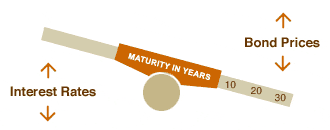Everything is a learning curve drawn from analysis, theory and action. You make a call by gathering as much information as you can. Listing to the streets, the fundamentals, reality. Look at the charts and then make your assessments.
It's disturbing how some economists particularly in the Keynesian camp (which is current monetary and fiscal policy) seem to completely play down inflation risks. They unfortunately do not want to accept that inflation and inflationary pressures have changed since the 1930's. It's not complex math to see that America's GDP has slumped yet we have higher fuel/amenities costs and a weakening US Dollar.
The US is zero bound with interest rates, yet if the Federal Reserve could, they would run under 0% right into negative territory and beyond. This as they believe would increase money flow, free up liquidity from lenders and reinvigorate economic activity. Of course this would pertain two problems 1. lenders would continue to horde dollars (a natural human reaction to survival when low to negligible value occurs) since money would have a negative return, also known in Keynesian speak as 'liquidity traps'. 2. inflation, which as some economist have said could hyper accelerate in the medium term. Hyperinflation could occur due to many different inflationary reasons, one of them being if taxes are to increase to offset huge government deficits, prices on everything could in increase rapidly. But as we have discussed oil inflation which is already here (note current oil price in weak economic conditions), could be pre-curser to inflation. As an inflated oil price effects everything, as oil is in 'everything'.
So with massive deficits occurring in the US, plus a 0% interest rate is a perfect combination to inflation and hyperinflation. Although the Keynesian theory is that running beneath 0% rates with fiscal deficits will allow demand and increase output thus holding off deflation. Again the fatal assumption is that inflation is close to 0% therefore government stimulus, money printing and generally throwing money at economies will work. It is a frighting disposition, when we know and I mean we as people, consumers, individuals and participants in our global economy that inflation has not abated and it certainly doesn't feel like inflation is sitting roughly at 0%. So the Federal Reserve and US government policy economists are living in 'la la land'.
But regardless the Fed will have to leave their interest rate at zero indefinitely, due to a conundrum in which they have purchased and are now holding huge quantities of goverment bonds (debt). The problem is trying to sell debt that the Fed holds back into the market at a good price. As we all know even if the US economy starts to recover and the Fed will be required to tighten liquidity (increase interest rates), they will still have to hold interest rates at very low rate. Otherwise when the Fed does try and sell it's 'bonds', they will take a hit and a big one as upward increases on interest rates effect bond holders, refer to graph:

So the Federal reserve that has been paranoid of deflation, could actually mark down it's own bond purchases at some point if they do indeed increase interest rates. But since the Fed has shown little respect to the US consumer. They may just sit on the zero bound and try and sell it's toxic junk (huge unrealized losses) that the Fed also holds. So the Federal Reserve could actually cause deflationary pressures as in runs into losses. It's main hope of course is government trying to rein in liquidity and narrow the deficit, as discussed this can only be done with increasing taxes. Either way, with growing government deficits and a zero interest policy and inflation lead from oil and food; a hyperinflation situation looks to be more of a certainly than a long term deflation period.
No comments:
Post a Comment